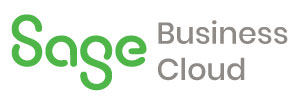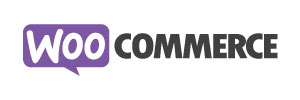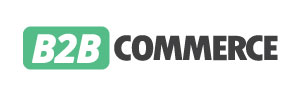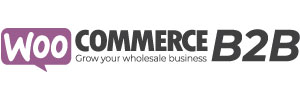Choosing the best B2B eCommerce platform is hard. You’re thinking about feature set, expendability, total cost of ownership, and how it will affect the future of your company. Contributing to that complexity is how the platform will integrate with your existing technology stack.
These integrations are essential for constructing an enhanced innovation service set, Each eCommerce financial investment has a function, core duties, and a set of expectations to meet. And like your in-person teams, each gamer brings complementary and special abilities to the table.
In particular, Business Resource Planning (Sage 50c) software application makes up a large part of an enterprise’s innovation financial investment. It’s a central part of your infrastructure, responsible for running crucial service functions, frequently including accounting, finance, inventory, and other operations services. Its importance can’t be overstated; most organizations leverage Sage 50c in various methods to solve special service issues.
So, when an eCommerce and Sage 50c integration is well thought out and running effortlessly, what advantages can you anticipate to see?
Data Collection, Sync and Value
When thinking of platform integrations, we tend to consider passing data back and forth in between the two systems. We focus on achieving successful sync that lets us, for example, send an order from eCommerce to Sage 50c, or update the inventory from the Sage 50c to the eCommerce system.
These synchronizations are made easier through seamless integration between the two systems. With tight integration between eCommerce and Sage 50c, each system can extend the other to support information collection.
When the eCommerce platform can extend to capture more information points, it improves the worth of each sync. It becomes possible to construct better client profiles or increase their connections to business, all through a system that’s precise and quick.
Live and accurate stock throughout the whole catalog makes sure a better on-site experience for clients. Your organization has the details it requires to delight consumers with brand-new item recommendations, promos, or discount rates tailored to their choices.
It’s also much easier to manage other elements of the client experience, such as managing out-of-stocks or backorders that might disappoint buyers. Remaining one action ahead of these issues helps reduce negative consumer interactions and supports a favorable brand name experience, no matter what.
Reduce ERP Burden
It is essential to think about just how much pressure you’re placing on your Sage 50c with everyday functions. When you ask a software to do more than it’s expected to, problems start to appear. These issues could trigger system slowdowns, bad efficiency, and other problems that detract from the consumer experience.
Of course, organizations typically recognize these problems and effort to work around them by making adjustments that they never expected to make. This, in turn, leads to additional resource strain and feature-stretch that adds to system inefficiency.
By linking Sage 50c service to an eCommerce platform, you eliminate the commerce problems from your Sage 50c. Any eCommerce-related pressures or feature-stretches are eliminated.
In other words, tight system integration makes Sage 50c more efficient with less demanding functions gotten out of it. As a result, the IT and Sage 50c teams can continue to make the most sound decisions relative to each system. This usually indicates less plugins, combinations, and maintenance required to keep the system running.
Additionally, with an outdoors software-as-a-service (SaaS)-based eCommerce solution, security and payment card industry (PCI) compliance are easier to handle. With lower costs and fewer advancement hours needed to keep the system running, teams are totally free to concentrate on these crucial locations instead of daily upkeep.
Be Customer Friendly & More Efficient
Much better integrations in between Sage 50c and eCommerce functions offer direct advantages to the consumer experience.
For example, think about a crucial element of your B2B shop, the consumer portal. This tool delivers essential functions for the consumer and minimizes the need for service groups to engage straight with purchasers:
- Payment & purchasing options
- Account details updates
- Address book details
- Tracking in-transit orders
These are the most interesting of function sets, however they’re needed for preserving your long-term customer relationships. This type of self-service website decreases the requirement for manual information entry and documentation, while likewise freeing up your service teams to spend time on other tasks– such as lead generation and relationship nurturing.
Obviously, all of this is dependent on having routine, precise syncing between your eCommerce platform and Sage 50c. When integration is done properly, all company procedures that depend on these platforms will have the most current and current information available.
Extend What You’re Already Doing
Integrations in between eCommerce and Sage 50c offer your marketing and sales teams more liberty to offer. They’ll have the tools they require to create distinct brand offers and customer experiences, all within an enhanced digital store.
In this system, it’s easy to examine choices, carry out testing, and enhance overtime to ensure the very best possible conversion rates. They may even have the possible to sell non-traditional products and services that were typically considered B2C.
Broadly, this benefit talks to the need for service flexibility. Companies must have the dexterity to make organization changes quickly when brand-new methods or chances occur. However it’s inadequate to be nimble; companies need to preserve this agility while making sure that their essential integrations operate efficiently, no matter what needs are put on them.
Contact the Storehub.io sales team to book a consultation.
See More on: Sage Business Cloud eCommerce Integration
Sage 200 Evolution eCommerce Integration
Sage 50C Partner eCommerce Integration












